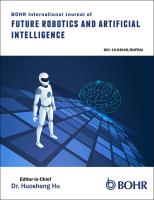Article,
Deep Learning Analysis for Estimating Sleep Syndrome Detection Utilizing the Twin Convolutional Model FTC
BOHR International Journal of Future Robotics and Artificial Intelligence, 1 (1): 11-17 (January 2021)
DOI: https://doi.org/10.54646/bijfrai.002
Abstract
Sleep specialists often conduct manual sleep stage scoring by visually inspecting the patient’s neurophysiological signals collected at sleep labs. This is a difficult, tedious and a time consuming task. The limitations of manual sleep stage scoring have escalated the demand for developing Automatic Sleep Stage Classification (ASSC) systems. Sleep stage classification refers to identifying the various stages of sleep and is a critical step in an effort to assist physicians in the diagnosis and treatment of related sleep disorders. In this paper, we propose a novel method and a practical approach to predicting early onsets of sleep syndromes utilizing the Twin Convolutional Model FTC2, including restless leg syndrome, insomnia, based on an algorithm which is comprised of two modules. A Fast Fourier Transform is applied to 30 seconds long epochs of EEG recordings to provide localized time-frequency information, and a deep convolutional LSTM neural network is trained for sleep stage classification. Automating sleep stages detection from EEG data offers a great potential to tackling sleep irregularities on a daily basis. Thereby, a novel approach for sleep stage classification is proposed which combines the best of signal processing and statistics. In this study, we used the PhysioNet Sleep European Data Format (EDF) Database
Tags
- algorithmdesign
- convolutionalneuralnetworks
- onsetdetection
- recurrentneuralnetworks
- signalprocessing
- sleepstageclassification
